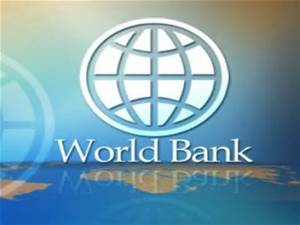The World Bank Group has expressed its intention to collaborate with Nigeria’s Ministry of Marine and Blue Economy to enhance the nation’s maritime sector. This announcement was made during a meeting between a delegation from the World Bank Group and the blue economy minister, Adegboyega Oyetola. Lia Sieghart, who led the World Bank team on this courtesy visit, emphasized that the purpose of their engagement was to align with the Nigerian government’s vision for sustainable development within the blue economy framework and to explore the World Bank’s capacity to offer relevant expertise and guidance. This partnership reflects the ongoing commitment to incorporate innovative strategies for managing marine resources effectively and sustainably.
During the visit, Ms. Sieghart commended President Bola Tinubu for the establishment of the Ministry of Marine and Blue Economy, indicating that such an initiative signifies the Nigerian government’s dedication to advancing the maritime sector. This endorsement is crucial as it signals a shifting awareness of the importance of marine resource management in sustaining economic growth and environmental health. The meeting touched on a shared vision for transforming Nigeria’s natural maritime advantages into viable economic opportunities, showing a progressive approach towards economic diversification in the context of global environmental challenges.
In response, Minister Oyetola expressed gratitude for the World Bank’s visit and reinforced the ministry’s commitment to leveraging Nigeria’s marine potential. He highlighted the strategic steps already initiated to harness the country’s marine and blue economy resources effectively. A focal point of discussion was the fisheries sector, which Oyetola pointed out as the flagship initiative of his ministry. The minister conveyed that the ongoing efforts to regulate fishing activities are aimed at ensuring sustainable practices that would revitalize local fisheries and make them appealing to the youth, thereby fostering job creation and community engagement in coastal regions.
A central component of Oyetola’s strategy involves reducing the country’s dependence on imported fish by boosting local production capacities. He articulated that promoting aquaculture and sustainable fisheries is not merely an economic venture but a vital aspect of ensuring food security and nutritional sufficiency for the Nigerian populace. By positioning local production at the forefront, the ministry is working towards a paradigm shift that encourages self-sufficiency, which is particularly relevant in light of increasing global supply chain disruptions and the need for resilience in food systems.
The minister’s dialogue with the World Bank Group also covered the importance of designating specific terminals for fishing operations to streamline activities in the sector. By focusing on targeted interventions and regulatory frameworks, the ministry aims to create an organized environment for fishery operations that would safeguard ecological balance while promoting sustainable economic activities. Oyetola’s vision of integrating youth involvement not only addresses unemployment but also encourages a new generation to engage with and care for the marine environment.
In summary, the engagement between the World Bank Group and Nigeria’s Ministry of Marine and Blue Economy represents a significant step towards revitalizing the maritime sector through sustainable practices and strategic partnerships. By focusing on fisheries and aquaculture development, Oyetola’s ministry is aligning with global best practices, ensuring local production enhancements, and fostering a sustainable marine economy. This collaboration highlights the essential blend of governmental commitment and international support needed to realize the full potential of Nigeria’s blue economy, seeking to achieve both ecological sustainability and economic prosperity.














